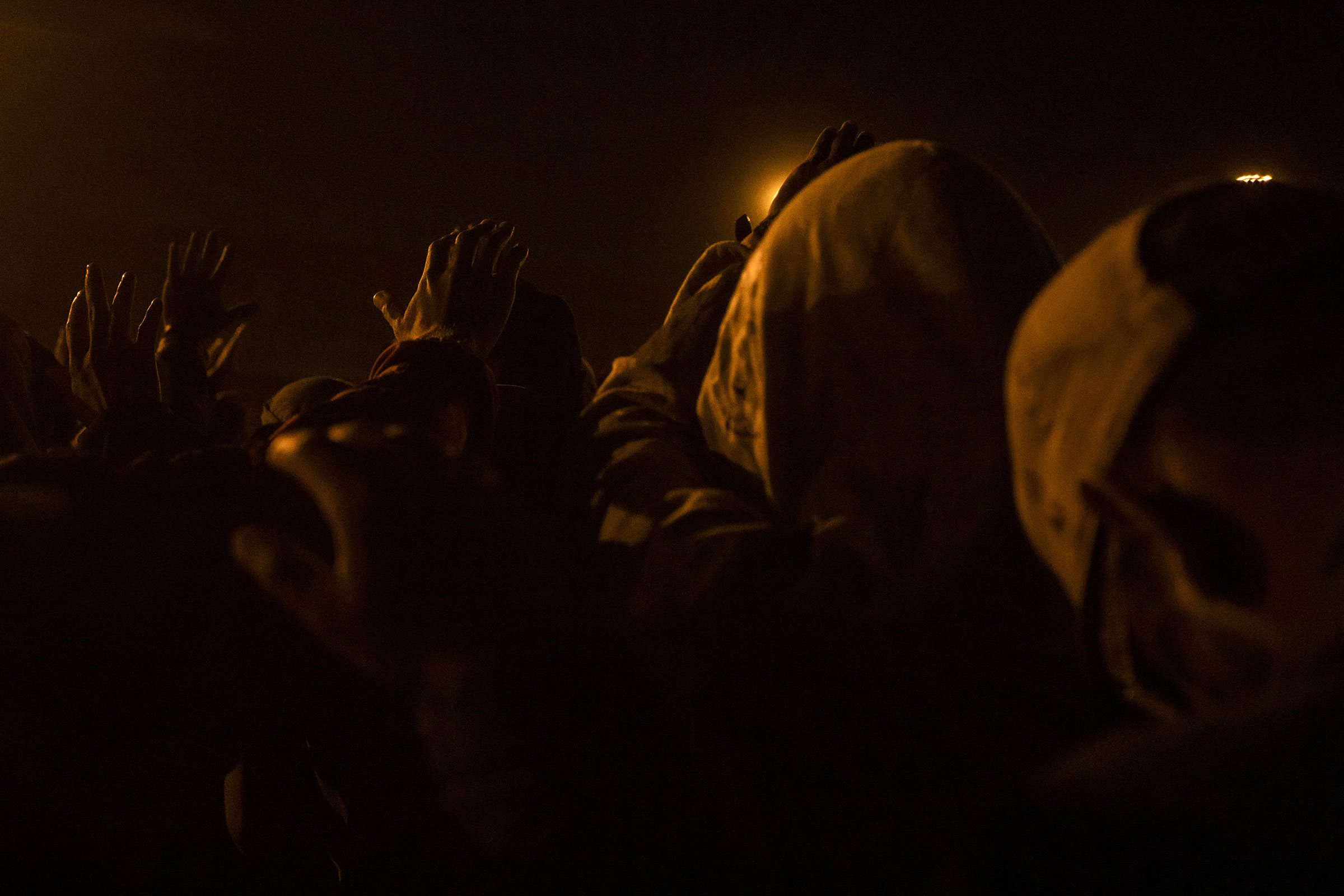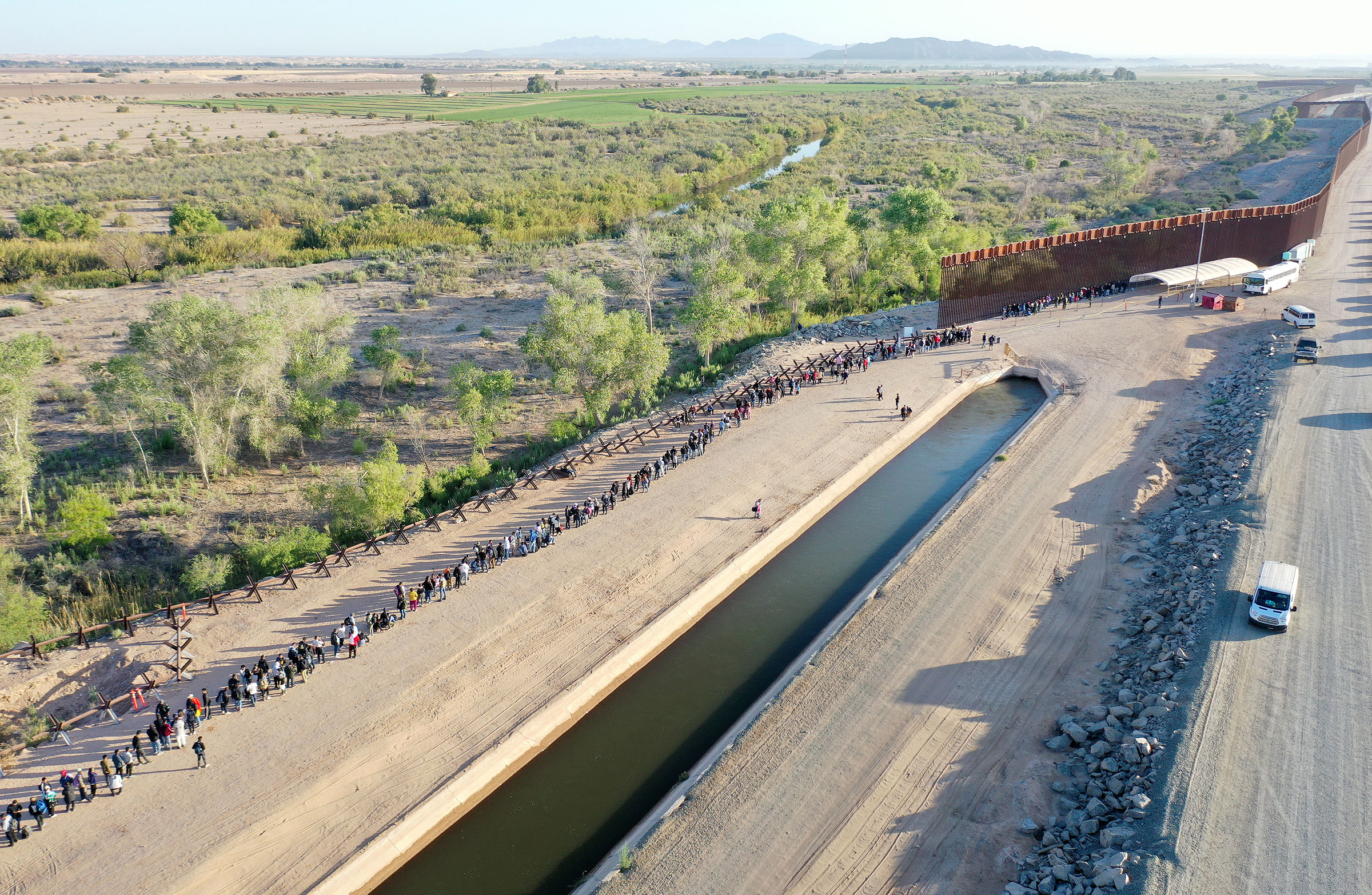As Andrea Rudnik arrives at a welcome center in Brownsville, Texas with a car full of snacks and water, migrants rush over to help her unload. It’s been busier than normal in the weeks leading up to May 11, when a federal order allowing the U.S. to quickly expel large numbers of asylum seekers is set to expire.
Rudnik runs Team Brownsville, which provides water, shelter and basic necessities to migrants dropped off by U.S. authorities to the Brownsville bus station. Three months ago, the group was welcoming close to 200 people a day; now, that number has shot up to between 800 to 1,000 people, she says. And they’re burning through supplies at a high rate. A month ago, restocking water for one week meant buying a pallet of water, which is 42 cases of 40 bottles. Now, they need multiple pallets a week. She believes they can keep scaling up but has to wonder, “Can we meet the need if numbers surge even more?”
Title 42, which began under the Trump Administration, is a pandemic-era policy that has been used more than 2.8 million times to expel migrants without giving them a chance to file asylum. Immigration advocates say the measure has unfairly limited access to asylum for migrants fleeing extreme violence and poverty, while some Republican states have sued to keep it in place, arguing that lifting it would lead to an “unprecedented crisis” at the border. Now, with Title 42 set to expire at 11:59 pm on Thursday, federal officials are preparing for more migrants to arrive in the U.S—expanding border cities’ capacity to detain migrants and deploying additional troops to support border patrol.

Read More: How the Biden Administration Plans to Deal With the Looming Border Crisis
Team Brownsville isn’t the only migrant aid group feeling the pressure. Blake Barrow, CEO of Rescue Mission of El Paso, which provides overnight shelter, opened up a second building to house migrant families last weekend. Together, the two facilities can now hold 250 people, and Barrow is prepared to convert the parking lot into an additional shelter if needed. “We were never set up to handle numbers like this,” he says. He says the group has spent $20,000 on mattresses and added about a dozen staff members to its roughly 30-person team since September.
The current situation has created a “bottleneck at the border,” says Dylan Corbett, the executive director of Hope Border Institute, a faith-based research advocacy and action organization operating in El Paso, Texas. The group is working with six Catholic parishes to provide housing and food to migrants and is also planning to expand its number of sites in anticipation of increased arrivals. “We don’t know how long it’s going to last,” he says. “But there’s going to be a need for increased support in El Paso for this population.”
The Biden Administration has already announced new asylum restrictions that will deport who can’t prove they applied online or sought protection in a country they passed through. Immigration advocates have criticized the rule, accusing federal officials of turning their back against vulnerable people seeking safety at the border. The ACLU has already indicated that they will sue.
Read More: ACLU Readies Lawsuit Over Biden Border Control Measures Ahead of Expected Border Surge

“People—believe it or not—are genuinely trying to do things the ‘right way.’ But that’s really hard to do when your government changes what the rules are every five minutes,” says Priscilla Orta, supervising attorney at Project Corazon, a program by Lawyers for Good Government, a human rights advocacy organization that runs pro bono legal service programs.
In the U.S., migrant aid groups may be overwhelmed, but the conditions are still better than in some border encampments Mexico, Orta says. One Wednesday, she went across the border from Brownsville to Matamoros, Mexico, and observed a camp of tents where people eat on muddy ground in the humid and muggy weather. “There’s no sanitation, there’s no beds, there’s no space,” she says.
But she also says part of her job is to demystify what life in America could be for people on the Mexican side of the border. She tells them that life in Brownsville is still tough, “explaining to them that this is one of the poorest cities in America,” Orta says. “We don’t have a lot of resources.”
More Must-Reads from TIME
- Cybersecurity Experts Are Sounding the Alarm on DOGE
- Meet the 2025 Women of the Year
- The Harsh Truth About Disability Inclusion
- Why Do More Young Adults Have Cancer?
- Colman Domingo Leads With Radical Love
- How to Get Better at Doing Things Alone
- Michelle Zauner Stares Down the Darkness
Write to Sanya Mansoor at sanya.mansoor@time.com